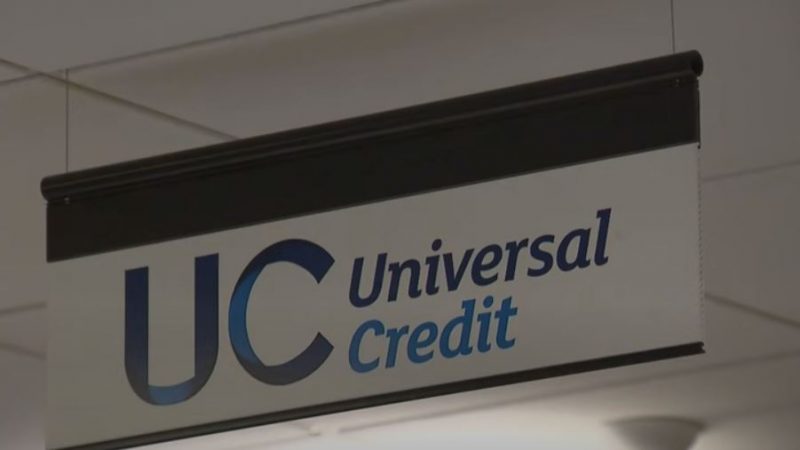As the cost-of-living crisis deepens, charities warn that without government intervention, millions could be pushed into poverty and destitution.

NGOs and experts are warning that unless immediate financial assistance is given to those most impacted by rising costs of living, many households will spiral into destitution, will have to rely on food banks and will be forced into debt.
The £20 weekly payment increase for those claiming National Insurance (NI) and working tax credits was introduced by the government during the start of lockdown. It was welcome news for many who were facing financial difficulty during the health crisis.
The uplift was brought to an end on October 6, 2021, with the government citing a shift to getting people back to work as the reason for the payment cut.
Critics branded the decision as the “biggest overnight social security cut since World War Two.” Campaigners and charities called it a lifeline for vulnerable people and urged the chancellor to reconsider the policy which cost the Exchequer £6 billion a year.
Living cost crisis is ‘far from over’
Among the organisations making fresh calls to reintroduce the NI boost, is the end homelessness campaign charity, Shelter. The charity’s chief executive, Polly Neate, said:
“The £20 uplift made a huge difference to the lives of people on the lowest incomes earlier on in the pandemic.
“The government needs to consider measures like this again as this pandemic and the living costs crisis is far from over.
“No parent should have to choose between putting the heating on, food on the table or paying their rent – but that is the reality for so many families right now,” Neate added.
The Trussell Trust, which works to end the need for food banks, is putting the same demands on the government. Gary Lemon, director of policy and research at the Trussell Trust, says that escalating reliance on food banks shows how the gap between what people can afford and the price of essentials is growing.
“The government should reinstate the £20 uplift and make it permanent. We know there is a mechanism for them to do it because they’ve just done it [in 2020].”
Calls echoed by Dan Paskins, director of UK impact at Save the Children, who says: “An immediate increase to Universal Credit would be the most effective way to help those who need it the most and could be done quickly and easily.”
‘Urgent reform’
According to Sophie Corlett, spokesperson for the mental health charity, Mind, the benefits system needs “urgent reform to make sure those of us with mental health problems can fully participate in society without being pushed into poverty.
“The UK government must do more to protect people this winter… by reversing the cut to Universal Credit and backdating payments to those on older disability benefits,” Corlett continued.
“Shocking” increases to energy bills
The calls are being made as households are facing “shocking” increases to their energy bills. Due to the energy regulator Ofgem increasing the energy price ceiling in October 2021, millions of families have seen their energy bills rise sharply.
Further increases are in the pipeline, with the next price cap adjustment taking place in the spring, which could see households face a bill rise of as much as £700.
Struggling families have been expressing their shock and contempt over the increases, as households in some parts of the country are being forced to pay 66% of their weekly budget on heating. Areas like Northern Ireland, Scotland, Wales and Northern England, are having to pay more for gas and electricity, the Office for National Statistics has revealed.
Some are turning to social media to voice their dismay.
“Just clocked my next bill for gas and electricity – £240 a month – are you for real, ffs!” someone posted on Facebook.
Another said: “F*cking robbery, how they expect Joe Bloggs to pay these kind of prices is ridiculous.”
Martin Lewis ‘near tears’
Moneysaving expert Martin Lewis said he was left near tears and feels “impotent” about being unable to help a single mum to afford her energy bills after her partner died with coronavirus.
In about emotional post, Lewis said: I feel near tears after doing my show. I started doing what I do out of a passion for financial justice and providing solutions.
“To be unable to help a single mum who lost her partner in Covid afford her energy bills leaves me feeling impotent. I’m shaking.”
He added that “political intervention” may be the only way to keep UK consumers from facing ever-rising prices.
In response to renewed calls to reinstate the £20 UC uplift amid soaring living costs, a government spokesperson said: “We’re providing extensive support to those on the lowest incomes, including putting an average of £1,000 more per year into the pockets of working families on Universal Credit, increasing the minimum wage and helping with the cost of fuel bills.
“Our £500m Household Support Fund is also giving more help to the most vulnerable with essential costs this winter, and councils have been given an extra £65m to support low-income households with rent arrears.
“Alongside these measures, the energy price cap is insulating millions of customers from record increases in global gas prices and will remain in place, and at the same rate, this winter.”
Gabrielle Pickard-Whitehead is a contributing editor to Left Foot Forward.
Left Foot Forward doesn't have the backing of big business or billionaires. We rely on the kind and generous support of ordinary people like you.
You can support hard-hitting journalism that holds the right to account, provides a forum for debate among progressives, and covers the stories the rest of the media ignore. Donate today.



